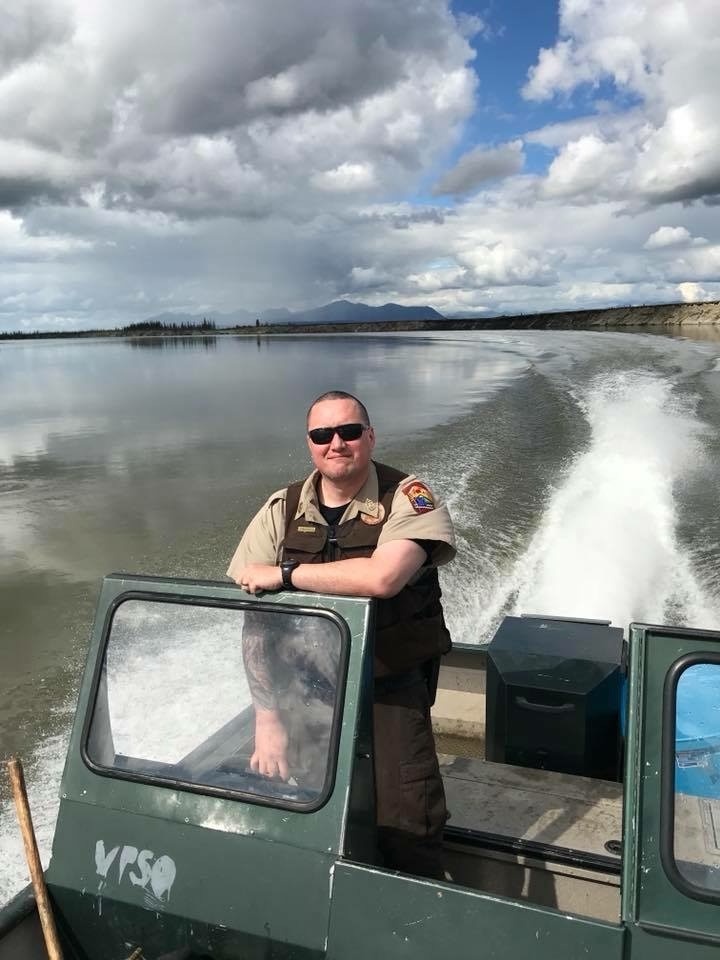 Village Public Safety Officers (VPSOs) are unique to Alaska. Dedicated public safety professionals, they provide rural fire protection, basic law enforcement, search-and-rescue coordination, emergency medical services and safety education in isolated, rural communities.
Village Public Safety Officers (VPSOs) are unique to Alaska. Dedicated public safety professionals, they provide rural fire protection, basic law enforcement, search-and-rescue coordination, emergency medical services and safety education in isolated, rural communities.
VPSOs are the first to arrive on the scene when help might otherwise be hours away. They come armed with tasers, spray and batons, but no guns. There are currently just over 50 VPSOs working in communities across Alaska; three years ago, there were 100. Lack of funding, and difficulty finding qualified candidates willing to live in a rural village, contribute to the shortage. Frequent exposure to traumatic events, threats to one’s own health and safety, geographic isolation and irregular working hours all contribute to rates of high turnover within the profession.
Still, for the right person, being a VPSO is less a job than it is a calling. One such person is John Peratrovich (Tlingit and Haida).
“Ever since I was a little kid, I wanted to be in law enforcement,” John said. “I didn’t come from a law-enforcement family, but it’s always something I was drawn to.”
John grew up in Anchorage, Juneau and Nome, Alaska, with a year spent in Washington, D.C. His parents are the late Frank and Nettie Peratrovich, and he is the grandson of the late Alaska Native civil rights leaders Elizabeth and Roy Peratrovich.
John’s parents worked for the Bureau of Indian Affairs, “so we moved around a lot,” he said. “I didn’t grow up exposed to a lot of Alaska Native traditions and culture – we were what I would call ‘city Indians’ – but being an Alaska Native person and a CIRI shareholder has helped me on the job.
“Where I’m working now, in Kotzebue, the residents are mostly NANA shareholders,” John explained. “But when I bring up in conversation that I’m a CIRI shareholder, they’re like, ‘Oh, OK, you’re Native, I get it.’ I think it helps being an Alaska Native person. What I always tell people is, ‘I’m Native, you’re Native. We may not be from the same tribe, but we share the same values.’”
John began serving as a VPSO in the early 1990s. His first assignment was in Anvik and Grayling, villages along the Yukon River about 500 miles west of Anchorage. “Anvik had a population of less than 100 back then. I was 22 and was like, I don’t know if this job is for me, so I left and came back to Anchorage. I actually worked at CIRI for a while, first as a courier and then as assistant manager of administration, but I decided to return to the job in 2005.”
Over the last 13 years, John has done stints in Savoonga, on St. Lawrence Island; Glennallen; and now Kotzebue, Alaska. He has worked both as a VPSO and VPSO coordinator, “but being a coordinator is a lot different than being a VPSO,” he said. “The hours are better, but it’s a lot of administrative work. I enjoy knocking on doors more than sitting in meetings.”
On July 1, 2007, John responded to a situation involving an intoxicated male in possession of a firearm. Rather than wait for Alaska State Troopers to be dispatched and risk serious injury to residents, he confronted and detained the suspect with minimal force and without injury. The Alaska State Troopers awarded Officer Peratrovich a Commendation for Honorable Service for his actions, and in 2008, he was commended by the Alaska State Legislature for his dedication and accomplishments as a VPSO.
“Like any job, you have to mingle and form relationships,” John said. “VPSOs get called into all types of law-enforcement situations – domestic violence assaults, angry neighbors, barking-dog complaints. In 2015, I responded to two calls within five weeks of each other where a child had shot and killed another child. That was tough. In those type of instances, where the incident has already occurred, we go in and secure the scene, find out who the players are, conduct cursory interviews and call in the state troopers.”
When he’s not working, John spends time with his wife and three children, engages in subsistence activities like hunting and fishing, and travels with his family in their RV. Spending two weeks at a time away from his family is tough, he admits – they stay in Anchorage while he works in Kotzebue. “But at the end of the day, I enjoy the job,” John said. “I can’t imagine doing anything else. I have a good working relationship with the communities I serve, and I know I’m helping people.”



